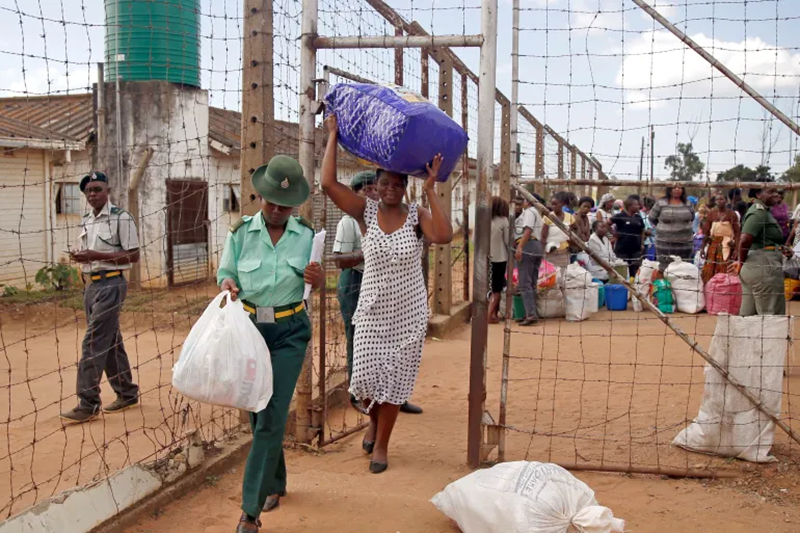- Featured
- No Comment
‘Fit for pigs’: Conditions in overcrowded Zimbabwe prisons choke inmates

Former inmates of Zimbabwe’s overburdened prisons say the conditions are inhumane. Activists say government neglect and economic woes are to blame
By Chris Muronzi I AL JAZEERA
HARARE: For convening what the police called an illegal gathering in Harare’s central business district, Parere Kunyenzura stayed 187 days in a prison cell last year without trial. Inmates came and left, but his enduring if unwanted companion was the powerful stench of human faeces and urine.
It was the worst at night when he and more than 100 other inmates were all locked up from 3pm to 6am. They piled up on the floor next to each other to share lice-infested blankets left behind by previous inmates.
During his time in jail, Kunyenzura frequently saw many inmates resort to defecating in plastic buckets. “The toilets don’t have a flushing system or don’t have the sitting bowls. Of the few that do, the flushing system doesn’t work,” he told Al Jazeera.
Kunyezura, a clergyman and leader of the Zimbabwe Transformative Party (ZTP), would silently pray that no one would suffer bouts of diarrhoea. But one night, a case of badly cooked spinach triggered a messy episode, and the inmates had to endure the putrid smell of faecal waste for up to 15 hours before it was cleaned.
“It was a crisis,” he told Al Jazeera. The buckets were not enough.”
Misheck Nyembe, a 72-year-old pensioner who spent 13 days behind bars in January for attending a political meeting the police had not given a permit for, told Al Jazeera that the prison was “infested with lice” and his body was itchy for weeks after his release. Nyembe, who ate only food provided by his family during his detention, said the prison meals were only “fit for pigs”.
“Everything about prison [in Zimbabwe] is horrible,” said Wilbert Mandinde, programmes coordinator at Zimbabwe Human Rights NGO Forum, which advocates for prisoners’ rights, including the right to vote and have access to water. “The conditions are terrible in the sense that they are congested.”
‘A need to decongest’
Since independence from Britain in 1980, the Southern African country has relied heavily on colonial-era facilities to hold criminal offenders. These facilities have long been overburdened and are now bursting at the seams as Zimbabwe’s economic woes worsen.
According to its justice ministry, there are 46 prisons in Zimbabwe. Two are exclusively for female inmates, 17 for men only, and the rest are mixed gender.
The prisons, which have the capacity to hold 17,000 inmates, were accommodating 23,000 as of March 2021. Harare’s Remand Prison, built in 1910 for a capacity of 800 people, now holds about 2,220, according to the justice ministry.
